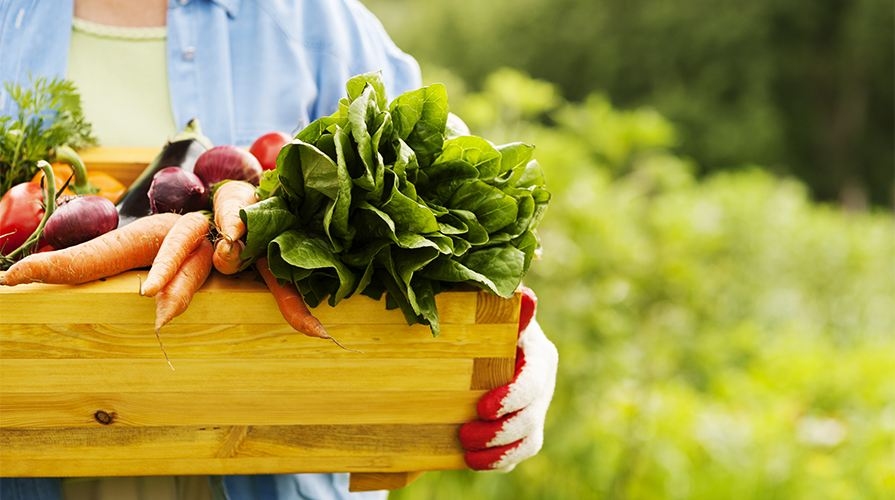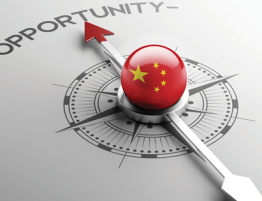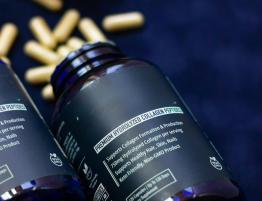
China represents the 4th market for the consumption of organic products with a value of € 8 billion and the 8% of the global sales worldwide. Therefore, it shall be considered as a target market for those operators who intend to export this category of products globally.
It should be noted that the Covid-19 pandemic, brake for the global economy, has not had a drastic impact on the organic sector in China. Actually, according to the latest market analysis, in 2020 the 64% of Chinese consumers bought organic food or drink, among which the 25% has been identified as a “frequent user”.
The main factors driving the purchase of organic products, also during the pandemic, reflect the attention of Chinese consumers towards physical health, food safety and its benefits on the maintenance of an healthy physical condition. Moreover, a series of food scandals occurred in China over the last years, emphasized the shift of interest of Chinese consumers towards foreign imported products, that, even at higher prices, better satisfy consumers’ needs in terms of quality and safety.
Geographically, the consumption of organic products is mainly concentrated within the high-tier cities, therefore big cities as Peking, Shanghai, Guangzhou, identifying the upper class (annual income exceeding 100.000 RMB) as the main destination target.
The turmoil of the organic sector in China involves various market segments. As regards food and beverage, organic is an important attribute in the choice of baby food (in particular milk powder), dairy products, fresh products and drinks.
Among the main sourcing countries of the organic products traded within the Chinese market, Italy occupies a relevant position. According to Chinese perception, Italy is considered as producer of excellences both for general food products and organic products specifically.
With the scope of being qualified as such, Made in Italy organic products shall comply a series of regulations and standard imposed by the Chinese legislator, that could become real entry barriers on the Chinese market.
In view of a greater level of standardization of the regulatory system, together with the purpose of guaranteeing both quality and safety of products traded in China, the local authority has many times revised and updated the reference standard. The last revision to technical standard dates to 2019 and came into force from 1 January 2020.
In particular, the current standard is the GB/T 19630-2019, that replaced the previous GB/T 19630-2011. It is composed of four parts (production, processing, labelling, management) and it applies to both local and imported organic products intended for sale within the Chinese territory.
According to regulation, a specific certification issued by a Chinese certificatory body is required in order to initiate the sale activity. Any other certification issued by the product country of origin is not considered valid. Chinese certification has validity 1 year, with possibility of renewal. EU organic mark or others issued by the Member States cannot be employed in substitution of the Chinese organic mark, but, eventually, as a complement in order to increase products visibility among consumers.
Another important revision concerns the organic products list accepted for certification. Currently, the Organic Product Certification Catalog includes 1.136 products related to 46 food categories, 11 more with respect to those ones reported in the previous version. Exporting companies of products not covered by the new catalog are not permitted to apply for certification. Products that received certification before the catalog release, but no more included in this latter, are allowed to benefit of the certification until the scheduled expiry date.
The Certification and Accreditation Administration of People’s Republic of China (CNCA), is the ministry agency directly established by the State Council of the PRC and it is identified as the competent authority for the standardization of management, supervision and coordination activities in terms of organic certification. CNCA determines the final approval relating to the release of certification firstly processed by the certificatory body authorized by the CNCA itself.
The “Beijing Ecocert Certification Centre”, the “China Organic Food Certification Centre” and the “Organic Food Develop and Certification Centre” are some of the bodies providing service in terms of certification release.
The procedure required for obtaining the organic certification provides for:
- Application and documents submission;
- Documents review;
- In-loco inspection;
- Inspection report;
- Evaluation (in case of non-compliance notification);
- Certification issue;
- Certificate maintenance
The interesting growth trend, that organic market is experiencing in China, is further demonstrated by the recent agreement signed by FederBio and COFCC, one of the main Chinese official body for the supervision and certification in the organic sector in China. The agreement, signed at the end of the last year, suggests new opportunities for the Made in Italy organic products, paving the road to Italian companies towards a market increasingly attentive to product quality.
This process of internationalization will be supported by trade fairs resulting from the collaboration recently defined as, for example, between BolognaFiere and Phenix Exhibitions. Fruit of this collaboration is the China International Organic Food Expo (CIOFE), held in the city of Xiamen and indicated by the ICE as an interesting opportunity for the presentation of Italian organic products within the Chinese territory.
The market growth made China the 2nd Asian market for this sector, registering a growth trend of 35% over the last years, therefore tracing a good potential for Italian organic.
These positive results encouraged BolognaFiere to launch an interesting project, the Marca China-International Private Label Fair, event held in Shenzhen, metropolis located in the Greater Bay Area in the Guangdong province (South-China).
The event is promoted as a good occasion for approaching Chinese operators to the wide Italian offer, meanwhile promoting the private label strategy.
The success experienced by leading supermarkets of the large-scale distribution (Yonghui Superstore, Freshippo, J.ZAO), related to the employment of private label, offers a cue for the evaluation of the new business opportunities linked to private label in China, reflecting the possibility for foreign companies to produce products easier marketable in China and to widen their offer at lower prices.
Forecasting the participation of 3.000 exhibitors and 20.000 visitors, this year the event will be held at the Shenzhen World Exhibition & Convention Centre in the days 12-13-14 of August.
China Desk








